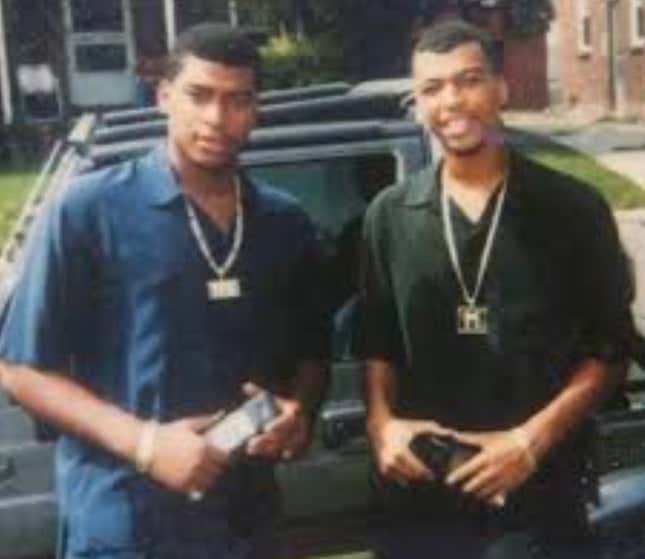
Big Meech is free. No, we’re not referring to the character in 50 Cent’s hit television series — we’re talking about the real Demetrius Flenory.
Nearly three months after Demetrius “Big Meech” Flenory was released from federal prison, the notorious drug kingpin is celebrating his freedom with a huge welcome-back concert that will feature several of hip-hop’s greatest acts. If you’re a hip-hop fan, it may be an event you don’t want to miss.
Last week, he announced the “BMF Big Meech Welcome Back Legacy Concert” that will be hosted by the man himself. Several of the most popular artists in hip-hop will be performing including 21 Savage, Rick Ross, Lil Baby, Moneybagg Yo, Sexyy Red, and many other talented artists.
The recent will take place on Thursday, February 13 at the Amerant Bank Arena in Fort Lauderdale, Fla.
With that in mind, let’s revisit the Black Mafia Founder’s rise and fall as one of the most infamous figures in criminal and hip-hop history.
Big Meech & Southwest Tee

Demetrius Edward Flenory was born in June 1968 in Detroit Michigan. He first started selling drugs with his younger brother, Terry “Southwest Tee” Flenory, in the form of $50 bags of cocaine in the 1980s.
After years of selling drugs, their small operation turned nationwide, and the Flenory brothers eventually expanded their operation to several states including Michigan, Georgia, Florida, California, Louisiana and others by the early 2000s.
BMF Entertainment front
Big Meech was already known to rub elbows with several high-profile rappers such as Young Jeezy, T.I., P. Diddy, Fabolous, and many others, so he and his brother thought that it would be a good idea to create BMF Entertainment as a promotion agency.
In actuality, this business served as a front to their criminal activity. But in the process, they did help promote some artists, most notably Bleu Da Vinci, who released an album in 2005 titled, “The World Is BMF’s.”
Federal investigation and indictments
The federal investigation of BMF began in October 2003. Indictments were brought against members of the organization a two-year probe that included several raids, seizures, and wiretaps.
In November 2007, Meech and Southwest T pleaded guilty to charges of running a criminal enterprise and in September 2008, they were both sentenced to 30 years in federal prison.
Release
Southwest T was the first to be released in May 2020 due to the COVID-19 pandemic and was ordered to serve the rest of his 30-year sentence in house arrest. Big Meech attempted to get the same treatment, but a judge denied it due to his poor prison behavior and claimed that he had not changed during his time behind bars.
Four years later, Meech is no longer behind bars. In a statement to the Washington Post, Meech’s attorney Brittany K. Barnett said, “He used his time in prison to focus on personal growth and transformation, and now he has the opportunity to begin a new chapter.”
“He’s out, but millions more remain trapped inside — there’s still so much work to be done. We need to push for real change, for a justice system that recognizes the dignity and potential for redemption in every individual,” added Barnett, who works for the Buried Alive Project, an organization that works to free prisoners serving severe sentences based on outdated drug laws.

